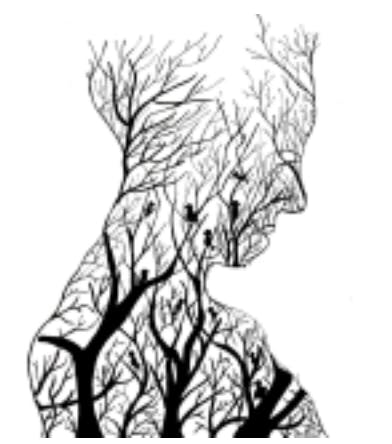TL;DR Science: Horticulture Therapy
By Iman K.
November 18, 2022 · 3 minute read
Medicine
Biology
Biological Engineering
Chemistry
Anxiety. It isn’t tangible but can overwhelm someone to the point of seeming so. The dictionary definition is: “a feeling of worry, nervousness, or unease, typically about an imminent event or something with an uncertain outcome.” This feeling can transform from an internal feeling to something with an external presence easily. However, there are ways to dissuade these negative emotional sensations.
Since anxiety related disorders often involve overwhelming feelings of nervousness, fear, and restlessness, symptoms are often displayed physically (Mayo Clinic, 2018). Therapy can be communication based, or involve both medication and counseling. Anxiety disorders impede the ability to complete daily tasks, and therapy aims to limit symptoms enough to resume activities those with anxiety refrain from participating in (National Alliance on Mental Health, 2017). One of the most advantageous cognitive or emotional principles for chronically anxious people is acquiring person-specific stress management strategies and sharing them within support groups (American Psychiatric Association, 2017).

(PixaBay, 2020)
An example of a strategy that could be used to treat a disorder like this is Horticultural therapy. This method of therapy is defined as the involvement of a person in various plant based activities to achieve a therapeutic treatment goal. Horticultural therapy provides physiological, social, and physical benefits associated with alleviating the symptoms produced by an anxiety disorder. Diagnoses of aforementioned disorders are typically accompanied by overwhelming feelings that lead to having a difficult time concentrating on anything other than fear.
People-plant interactions create an avenue for mindfulness-based activities to focus on, and allow a breath of fresh air in the midst of extreme angst. In addition, anxiety causes increased heart rate and stress levels, which is a cortisol mediated response (APA, 2017). Research indicates horticultural therapy is an effective strategy at lowering cortisol levels and decreasing heart rates. A horticultural therapy program provides benefits unique to alternative treatments. Social engagement provided by horticultural therapy can provide a support-group type atmosphere, which can be much more inviting than a typical cognitive-behavioral client-therapist interaction. In addition, many who suffer from anxiety disorders have trouble sleeping (MC,2018). Horticultural therapy involves added exercise and engagement that other treatment plans do not, leading to a healthier bedtime routine. Exercise is one of many physical benefits that horticultural therapy offers, which is strongly correlated with a reduced heart rate and a sense of relief from stress, thus leading to better rest.

(Alamy, 2010)
Through the interaction with a therapeutic garden and under the care of a licensed horticultural therapist, great improvements can take place in a patient’s treatment plan. Some aspects of a therapeutic garden include: raised planting beds and containers, and a sensory-oriented plant variety with respect to color, smell and texture. Keep in mind that these types of gardens do tend to be extremely accommodating to people with disabilities, so all patients are able to participate in this unique treatment technique. Patients can help in planting new plants, removing weeds, or organizing rows within one of the flower beds as a part of their therapy plan. In essence, horticultural therapy would be an advantageous technique to include in the treatment plan of those who have an anxiety disorder.
Did you enjoy this article?
About The Author
Iman Khalid is a Sophomore student at the University of Florida studying Applied Physiology and Kinesiology. She enjoys running, reading, and horseback riding in her free time. For any comments, questions, or concerns, contact Iman at iman@sciteens.org.